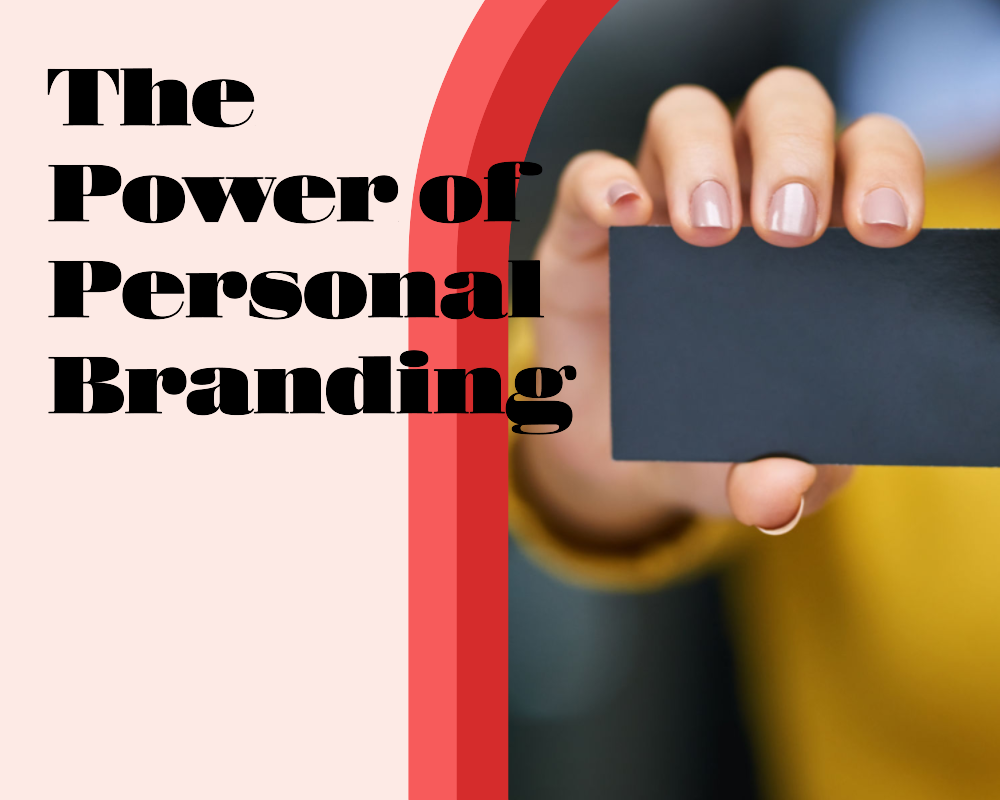
In today's competitive market, it's not enough to just have a great product or service. You need to stand out from the crowd and make a name for yourself. That's where personal branding comes in.
Personal branding is the practice of developing a unique image and reputation for yourself that sets you apart from others in your industry. It's about showcasing your strengths, values, and personality to create a lasting impression on your audience.
In this fast-paced digital age, personal branding has become more important than ever before. With the rise of social media and online platforms, it's easier than ever to build your own personal brand and reach a wider audience.
So, if you want to take your business to the next level and establish yourself as a thought leader in your industry, it's time to start investing in your personal brand. In this article, we'll explore the power of personal branding and share some tips on how to create a strong personal brand that will help you stand out in a crowded market.
Personal branding is important because it allows you to differentiate yourself from your competitors. When you have a strong personal brand, people will remember you and your business. Your personal brand is what people say about you when you're not in the room. It's the perception that people have of you and your business. When you have a strong personal brand, people will be more likely to trust you and your business.
Another reason why personal branding is important is that it can help you establish yourself as a thought leader in your industry. When you have a strong personal brand, people will look to you for advice and guidance. You'll be seen as an expert in your field. This can lead to more speaking opportunities, media interviews, and other opportunities to showcase your expertise.
There are many benefits to personal branding. First and foremost, it can help you stand out in a crowded market. When you have a strong personal brand, people will remember you and your business. This can lead to more business opportunities, partnerships, and collaborations.
Another benefit of personal branding is that it can help you establish yourself as a thought leader in your industry. When you have a strong personal brand, people will look to you for advice and guidance. This can lead to more speaking opportunities, media interviews, and other opportunities to showcase your expertise.
Personal branding can also help you build trust with your audience. When you have a strong personal brand, people will be more likely to trust you and your business. This can lead to more loyal customers and repeat business.
There are many examples of successful personal branding. One of the most well-known examples is Oprah Winfrey. Oprah has built a personal brand around her values of empowerment, education, and self-improvement. She has used her personal brand to build a media empire that includes a television network, a magazine, and a website.
Another example of successful personal branding is Richard Branson. Branson has built a personal brand around his values of innovation, adventure, and social responsibility. He has used his personal brand to build a successful business empire that includes Virgin Records, Virgin Atlantic, and Virgin Galactic.
Before you can start building your personal brand, you need to identify what makes you unique. What are your strengths, values, and personality traits? What do you want to be known for? These are all questions that you need to answer in order to identify your personal brand.
One way to identify your personal brand is to ask for feedback from others. Ask your friends, family, and colleagues what they think your strengths and weaknesses are. This can help you get a better sense of how others perceive you.
Another way to identify your personal brand is to look at your competitors. What sets you apart from them? What do you do better than they do? This can help you identify your unique selling proposition.
A personal brand statement is a concise statement that sums up your personal brand. It should be a clear and memorable statement that captures the essence of your personal brand. Here's an example of a personal brand statement:
"I help small business owners grow their businesses by providing practical advice and insights that they can implement immediately."
Your personal brand statement should be included on your website, social media profiles, and other marketing materials.
Once you've built your personal brand, it's time to start promoting it. Here are some tips to help you promote your personal brand:
There are many tools and resources available to help you build your personal brand. Here are a few:
There are many tools and resources available to help you build your personal brand. Here are a few: